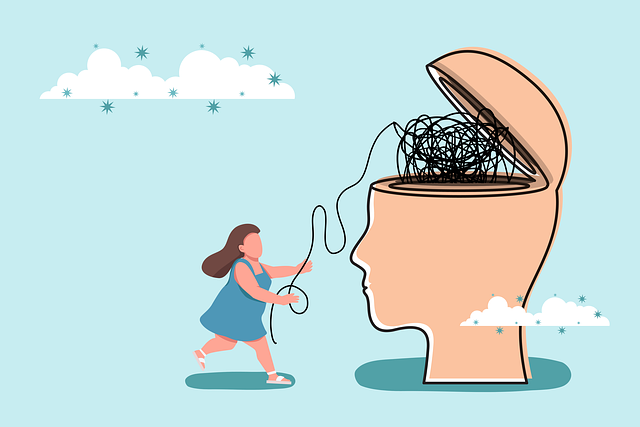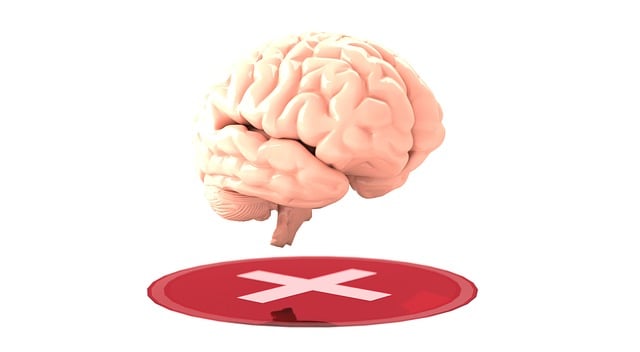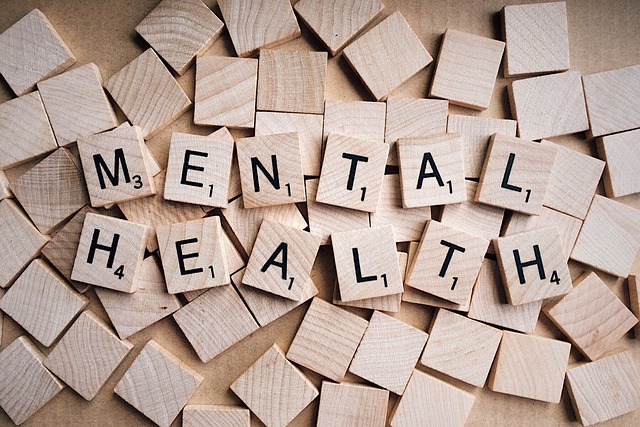Children with dissociative disorder require early intervention through tailored therapy focusing on empathy-building and positive thinking exercises. These programs, combined with mindfulness practices and community outreach, empower kids to manage emotions effectively. Tracking progress and celebrating successes are crucial aspects of treatment, fostering collaboration within the child's support network and enhancing mental wellness. By integrating these strategies into homes and schools, we can provide valuable resources for affected children and their families while improving overall mental health.
“Unleash the healing power of positive thinking for children affected by dissociative disorder with this comprehensive guide. Understanding dissociation’s unique challenges, we explore how positive thinking exercises can be a transformative therapy. Learn to create structured activities that empower kids to manage their thoughts and emotions effectively. Discover practical implementation strategies for home and school settings, tracking progress, and celebrating successes. Empower yourself or educators to become catalysts for positive change in young minds.”
- Understanding Dissociative Disorder in Children
- The Power of Positive Thinking for Kids
- Creating a Structured Positive Thinking Exercise
- Implementation Strategies for Home and School
- Tracking Progress and Celebrating Successes
Understanding Dissociative Disorder in Children

Dissociative Disorder in children is a complex mental health condition characterized by a disconnection from reality and one’s own emotions and memories. This disorder often manifests as a coping mechanism for trauma, allowing young minds to detach from distressing experiences. Children with dissociative disorders may exhibit symptoms such as identity confusion, memory lapses, and a sense of detachment from their surroundings, making it crucial to seek professional help.
Early intervention is vital in managing this condition, and therapy plays a significant role. Mental wellness coaching programs tailored for children can help them develop empathy-building strategies to improve social interactions and self-awareness. Through these programs, children learn to recognize and manage their emotions effectively. Additionally, mental illness stigma reduction efforts are essential in creating a supportive environment, encouraging open conversations about dissociative disorders, and promoting understanding among peers and caregivers.
The Power of Positive Thinking for Kids

Positive thinking exercises have been shown to be incredibly beneficial for children, especially those navigating mental health challenges like dissociative disorder. By encouraging a child to focus on optimistic thoughts and affirmations, therapists can help foster self-esteem improvement and emotional resilience. This simple yet powerful approach can act as a form of therapy for children dissociative disorder, aiding in their ability to manage symptoms and cope with stressful situations.
Incorporating these exercises into therapy sessions allows mental health professionals to conduct a risk assessment more effectively, tailoring interventions to meet each child’s unique needs. Furthermore, healthcare provider cultural competency training is crucial in this context, ensuring that positive thinking strategies are presented sensitively and inclusively, catering to diverse backgrounds and experiences.
Creating a Structured Positive Thinking Exercise

Implementing a structured positive thinking exercise can be a powerful tool for children with dissociative disorder, offering them a safe and controlled environment to explore their emotions. This practice involves guiding young minds through various techniques designed to cultivate optimism and resilience. One effective approach is to incorporate mindfulness practices, encouraging children to focus on the present moment and identify positive aspects of their surroundings. For instance, a simple activity could be asking them to name three things they are grateful for each day, fostering a sense of appreciation.
The exercise can also integrate conflict resolution techniques, teaching children healthy ways to express and manage their emotions. By participating in role-play scenarios or group discussions, they learn to navigate social interactions with positivity and empathy. This holistic approach, combined with regular sessions, can significantly contribute to the mental wellness podcast series production, providing valuable content for parents and caregivers. Additionally, community outreach program implementation can further extend these practices, creating a supportive network that promotes positive thinking on a larger scale.
Implementation Strategies for Home and School

Implementing positive thinking exercises at home and in schools is a powerful approach to enhancing mental health, particularly for children with dissociative disorders. For parents and caregivers, incorporating these strategies into daily routines can foster a sense of stability and security. Simple practices like guided meditation, gratitude journaling, or even family walks in nature can help reduce anxiety and promote healthy coping mechanisms. These activities create opportunities for connection and open dialogue, encouraging children to express their feelings and thoughts, which is crucial for therapy in dissociative disorder cases.
In educational settings, teachers play a vital role in implementing mental health initiatives. By integrating positive thinking exercises into lesson plans or break times, schools can contribute to a holistic Mental Health Policy Analysis and Advocacy approach. Resilience building activities, such as group discussions on overcoming challenges or creative art sessions, not only support academic development but also teach valuable skills for navigating stress and emotional difficulties. Self-care practices can be seamlessly integrated, ensuring students have the tools to manage their mental health effectively from an early age.
Tracking Progress and Celebrating Successes

Tracking progress and celebrating successes are integral components of any positive thinking exercise regimen, especially when tailored for children with dissociative disorders. By setting measurable goals and regularly assessing their achievements, therapists can ensure that the therapy is effective and adjusted to the child’s unique needs. This process involves both quantitative metrics, like tracking attendance at sessions or adherence to a self-care routine, and qualitative assessments, such as observing improvements in emotional regulation during interactions.
Incorporating regular milestones and rewards into the therapeutic journey not only provides an opportunity for children to experience success but also reinforces positive behavior. These successes can be shared with the child’s support network, including parents or caregivers, to foster a collaborative environment that enhances their mental wellness. Moreover, recognizing these achievements can serve as powerful burnout prevention strategies for healthcare providers involved in the therapy, ensuring they remain motivated and dedicated to supporting children with dissociative disorders through their healing process.
Implementing positive thinking exercises as part of therapy for children with dissociative disorder can significantly enhance their emotional well-being and resilience. By creating structured activities that foster a sense of safety and control, both at home and in the classroom, children can learn to navigate their experiences more effectively. Consistent tracking of progress and celebrating successes along the way further strengthen this therapeutic approach, allowing for a more optimistic outlook and improved coping mechanisms. With dedicated implementation strategies, positive thinking exercises hold promise as a valuable tool in supporting children with dissociative disorder.














